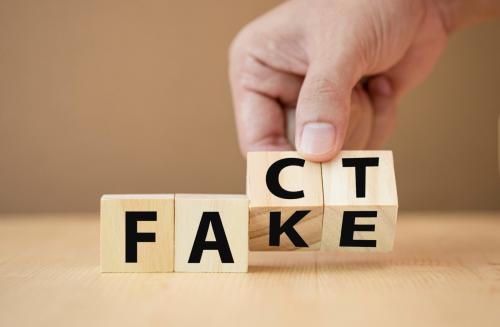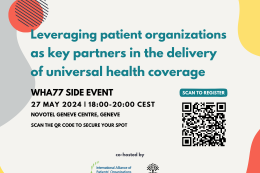Fighting the COVID-19 Infodemic

Whilst we continue working towards slowing the spread of COVID-19, a global epidemic of misinformation continues to spread rapidly through social media platforms and other outlets posing a serious problem for public health. “We’re not just fighting an epidemic; we’re fighting an infodemic”, said WHO Director-General Tedros Adhanom Ghebreyesus at the Munich Security Conference on Feb 15. And although a lot has been done to counter the disinformation, more is needed. In line with this, IAPO has been participating in the WHO Information Network for Epidemics (EPI-WIN). This is a newly formed forum with the aim of using a series of amplifiers to share timely, accurate and relevant information to all.
The WHO became extremely alarmed by the runaway misinformation and outright malicious posting that were undermining Member States and their efforts to control the COVID-19 pandemic.
As WHO Director General said at the WHA 73 that the pandemic has brought out the best – and worst – of humanity, fortitude and fear; solidarity and suspicion; rapport and recrimination. But most importantly, that science has been hailed and scorned. This contagion exposes the fault lines, inequalities, injustices and contradictions of our modern world.
COVID-19 pandemic and response has been accompanied by a massive ‘infodemic’ - an over-abundance of information – some accurate and some not – that makes it hard for people to find trustworthy sources and reliable guidance when they need it.
Due to the high demand for timely and trustworthy information about COVID-19, the World Health Organization (WHO) was prompted to establish the Information Network for Epidemics (EPI-WIN) that unites technical and social media teams working closely to disseminate and amplify the evidence-based information about COVID-19, and to track and respond to misinformation, myths and rumours.
The aim of this first technical consultation is to develop an infodemic response framework to guide targeted interventions to promote dissemination of reliable information about COVID-19, and reduce misinformation, rumours and myths about COVID-19.
The discussion raised awareness of the volume of information on the Internet; and explored perceptions of segments of society and health care workers with regard to the use of qualified sources for health decision-making; but also made recommendations that facilitate strengthening health worker capacities and institutional competencies related to digital literacy. The consultation brought a multidisciplinary team of scientists, public health decision-makers, medical journalists, technology and social media platforms, and civil society to address interventions and solutions.
We invite you to check out the EPI-WIN page as it aims to de-bunk myths that emerge on social media and other sources and leverage existing networks within sectors to disseminate information.
Related information
EPI-WIN: WHO information network for epidemics page



